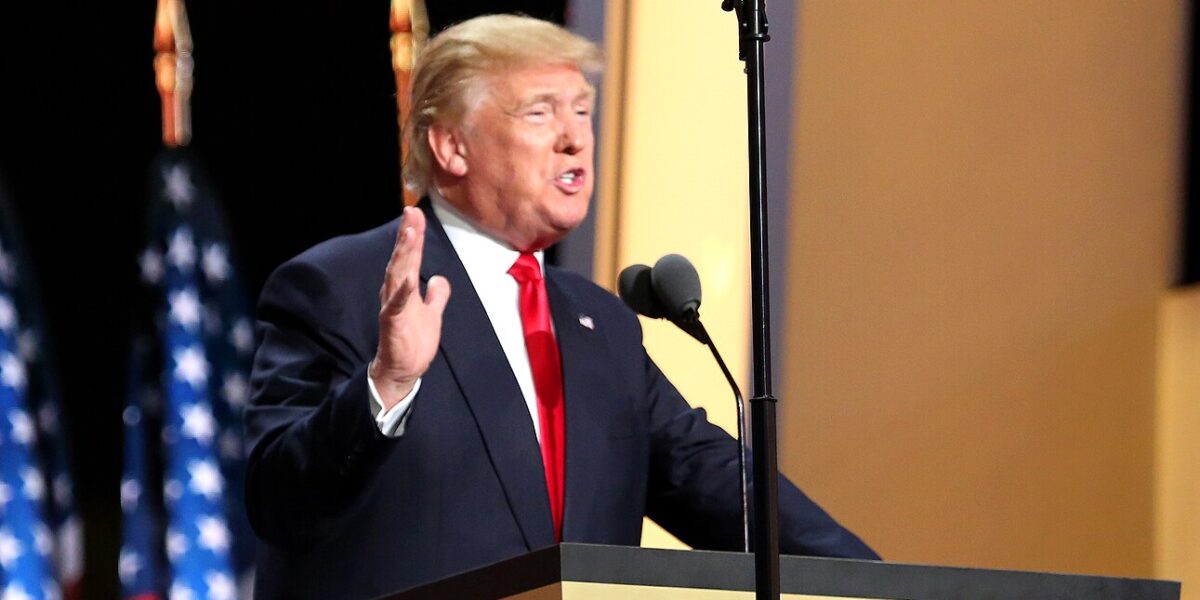Donald Trump has taken to social media and threatened to impose punishing tariffs on goods from Canada, Mexico and China on day one of his presidency.
Such a move should not surprise anyone.
During the recent U.S. election campaign, Trump repeatedly said “tariff” was his favourite word in the dictionary. In fact, protectionism has been a central feature of Trump’s outlook since long before he first ran for office.
More than 40 years ago, when he was nothing more than a real estate mogul, Trump was decrying the fact that major trading partners such as Japan were “taking advantage” of the U.S.
The phrase “taking advantage” is one of the president-elect’s favourite rhetorical tropes.
He frequently uses it, for instance, to castigate NATO member countries, Canada among them, who do not spend the requisite two per cent of GDP on their military.
Needed for non-economic reasons
As for Trump’s most recent rattling of the tariff sabre, it is noteworthy that he does not cite as justification the harm imports from the targeted countries cause to U.S. industry.
Trump’s stated motives are not economic. He does not cite protecting U.S. jobs as a reason for new and punishing levies on imports from Mexico, China and Canada.
Rather, the soon-to-be president says he will impose a 25 per cent tariff on goods from his two North American partners, and 10 per cent in addition to the current tariff on goods from China, because of – wait for it – fentanyl and the flow of what Trump calls “illegal” migrants.
What do illegal drugs and desperate people seeking a safe haven have to do with refrigerators from China, strawberries from Mexico, and auto parts from Canada?
If you answered “nothing”, you’re right.
The reason Trump cites these unconnected phenomena as justification for new protectionist measures is that U.S. presidents do not have unlimited authority to impose tariffs at their whim.
Constitutionally, tariffs fall within the purview of the U.S. legislative branch, Congress. The president can only unilaterally impose new tariffs in wartime or for national security reasons.
The wartime power goes back to a 1917 law passed during World War I. The national security provision only came about in 1974, in a new trade act Congress passed during Richard Nixon’s presidency.
The 1974 act gives presidents the power to impose tariffs of up to 15 per cent, for a limited time period, 150 days, if they deem imports have a negative impact on U.S. “national security.”
There is no law giving the president the right to impose 25 per cent tariffs for an unlimited time period.
In 2018, when Trump imposed tariffs on imports of steel and aluminum (including those from Canada), it was for notional national security reasons – and only for the prescribed limited period.
Those tariffs did not even last the full 150 days. The U.S. business community was as opposed to them as were Canada and other U.S. trading partners.
All we know of Trump’s intentions this time is what we can glean from two brief posts on his own social media platform, Truth Social.
Both are infused with his customary over-charged rhetoric and haphazard use of the upper case.
One post focuses on China. The other targets the two North American countries with which Trump himself negotiated a trade agreement to supplant the North American Free Trade Agreement (NAFTA). They called that new deal the U.S.-Mexico-Canada Agreement (USMCA).
Now, Trump blithely threatens to ignore his own signature and break U.S. law to boot.
His Truth Social post does not mention a time limit for tariffs on Mexican and Canadian goods. It only says the new 25 per cent levies would remain in effect until such time as the flow of drugs, especially fentanyl, and of so-called illegal aliens into the U.S. stops.
Unprecedented use of president’s emergency powers
Trump has not, to this point, shown much concern for what is legal or constitutional – whether in his personal, business or political affairs.
But if he and his advisors were to seek some legal justification for tariffs in excess of 15 per cent and without a time limit, they might cite a more recent law than the 1974 trade act, the U.S.’s International Economic Emergency Act (IEEA) of 1977.
Doing so might be difficult for the Trump gang, however, because the IEEA does not even mention the word tariff.
The 1977 act gives the U.S. president power to declare there exists an “unusual and extraordinary threat… to the national security … or economy of the United States” which originates “outside the United States.”
Having made that determination, the president then has the right to regulate international commerce.
Those powers are broad and sweeping. However, no president has ever used them as a pretext for tariffs.
As well, the IEEA’s emergency powers are, like those of the 1974 trade act, time-limited. A prior law, the National Emergencies Act, provides that a presidential declaration of emergency will only remain valid for one year, after which it must be renewed.
All of that legal stuff is not front and centre for the Canadian government right now. When asked about Trump’s tariff threat, Justice Minister Arif Virani said:
“I’m going to rely upon my economic colleagues to address that. I think we’ll continue to work diligently to make sure that the relationship is functioning well and we’ve got a Canada-US Action Committee of Cabinet.”
But what about the USMCA and U.S. law? Is the minister preparing any legal challenges to what would clearly be illegal tariffs, on at least two counts?
The justice minister’s terse and non-committal answer was, “I’m not going to speculate.”
One reason bullies get away with being bullies is that their victims, as well as bystanders and witnesses, scrupulously respect rules and norms for which bullies only have undisguised contempt.



